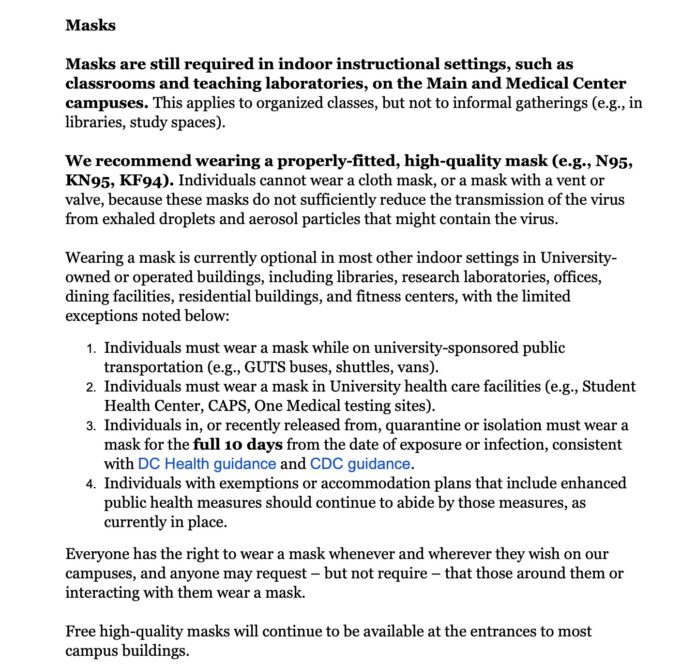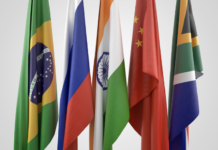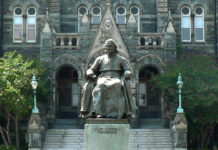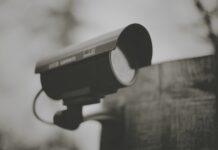![]()
This past Friday, Georgetown students received a university memo outlining a continuation of mandatory masking in classrooms and on public transportation. The mandate has been lifted everywhere else on campus, including other campuses such as the Law Center.
Despite the decision’s irrationality, this was an unsurprising announcement. Georgetown and many other institutions have demonstrated a desire to posture their importance regarding COVID-19 strong enough to ignore any scientific data that presents the contrary. Dr. Fauci, America’s leading health expert on COVID-19, has provided guidance suggesting that masking in classrooms has been unnecessary since the emergence of the omicron variant. While viruses mutate, evidence continues to be released suggesting the current strand of COVID-19 is even less harmful than Omicron. Furthermore, Dr. Fauci and President Biden contest that COVID-19 is something we must live with and that infection is inevitable.
President Biden’s original promise to the American people was “Vaxxed or Masked.” Fortunately, Georgetown boasts a vaccination and booster rate of 98%, which effectively eliminates the chances of severe infection.
Yet, Georgetown continues to ignore the scientific consensus. When the CDC updated its quarantine length from ten days to five days, the university waited an entire month to change its quarantine requirements. In addition, when DC’s health department removed its need for masking in places of accommodation such as restaurants and gyms, Georgetown remained reluctant to do so. In a two-week period, Georgetown removed and reimposed the requirement shortly after spring break. Both of these delays had zero scientific data for an explanation. The university has mentioned on several occasions that these new changes come in the name of utmost precaution despite admitting that zero infections have led to a death or landed a student in a hospital, essentially creating a solution for a problem that doesn’t exist.
The role of respected universities like Georgetown requires adhesion to scientific facts, not scare tactics and irrational action. Unfortunately, ignoring the CDC and DC Public Health Department and instilling stricter measures with a less vulnerable population indicates that the university puts its desire to virtue signal over science.
Georgetown’s COVID-19 policy is also vastly inconsistent, especially in comparison to concerns of equal (if not greater) importance.
For example, while Georgetown did not see a single COVID fatality during the 2021-2022 school year, one suicide took place alongside waves of mental health concerns from across the community—yet the responses students received from the university indicated no plans to improve funding CAPS, our student mental health organization. Many students complained of a month’s wait time before they could see a therapist, even after the tragic death of a fellow classmate. Despite this, the university had no issue buying rooms at the Glover Park Hotel when campus hotel occupancy became too large from quarantine. Students occupied many rooms in the hotel until the end of the school year. I wonder if the university has a plan to shift its financial focus if a tragic event like this happens again.
In addition, students were allowed to attend men’s basketball games at Capital One last winter without strict mask-wearing enforcement. In contrast, students were denied the ability to support their female counterparts on campus. Logically, would this suggest that gatherings were permitted off campus? This policy that allowed students to gather in large groups, as long as it was outside the main campus is not beneficial for combatting a pandemic. Furthermore, the preference given to male athletics reeks of a discriminatory bias by Georgetown’s public health team. Are they implying that women’s activities come second to men’s in a state of emergency?
These examples of mismanagement and inequity are egregious. I personally experienced yet another example of Georgetown’s public health leaders’ ineptitude: the lack of nutritious food options in quarantine. Exiled to a hotel in Glover Park in February, I received three meal boxes weekly, each containing three bottles of water, Powerade, and packaged food. While this seems fine on the surface, the university does not notify students of their given food supply. I recall receiving a box of food Friday morning, expecting it to last one day, as my other meals had. However, I didn’t receive one for the entire weekend, meaning, without my knowledge, the box I received on Friday would be my food for that day and the whole weekend. When I called Georgetown’s COVID help team asking for additional food on Saturday, they did not answer the phone. I even resorted to calling GUPD to get a hold of them. I was unsuccessful. When I finally reached the team on Monday, they said all students get three boxes of food a week and can ask for more if needed. This is functionally incorrect. In addition to the lack of notification about food supply, I could not even ask for more food for the most prolonged period that a box was supposed to last. A simple warning would have sufficed.
I avoided going hungry for those days, but many students lack food security and are in an economically underprivileged position. I ponder, would Georgetown let them starve?
If the university truly cared about students’ health, their logistical incompetence would not be tolerated. Fighting off a disease, especially one requiring quarantine like COVID-19, critically requires self-care. Three water bottles for two days is insufficient for the hydration essential to combat a disease. Students with diabetes do not have the luxury of drinking the provided Powerade. In addition, Georgetown ignored religious, philosophical, and health-related dietary restrictions. If Georgetown seeks to pride itself on diversity and rectifying disparities, the administration must do better. A sensible person would assume things like this wouldn’t happen when paying $80,000 annually.
While past failures have delegitimized the credibility of our public health officials, restoring confidence in their management is possible through consistent, scientific-based policy. If masks are optional everywhere, especially in situations requiring more social interaction, what sense does it make to require them only in a classroom? This policy does nothing to stop the spread of COVID-19, especially if this is the only policy. If the university wants to prevent the spread of the virus, there are certainly ways to do it; however, only requiring masking in classes while leaving it optional everywhere else is not effective.












